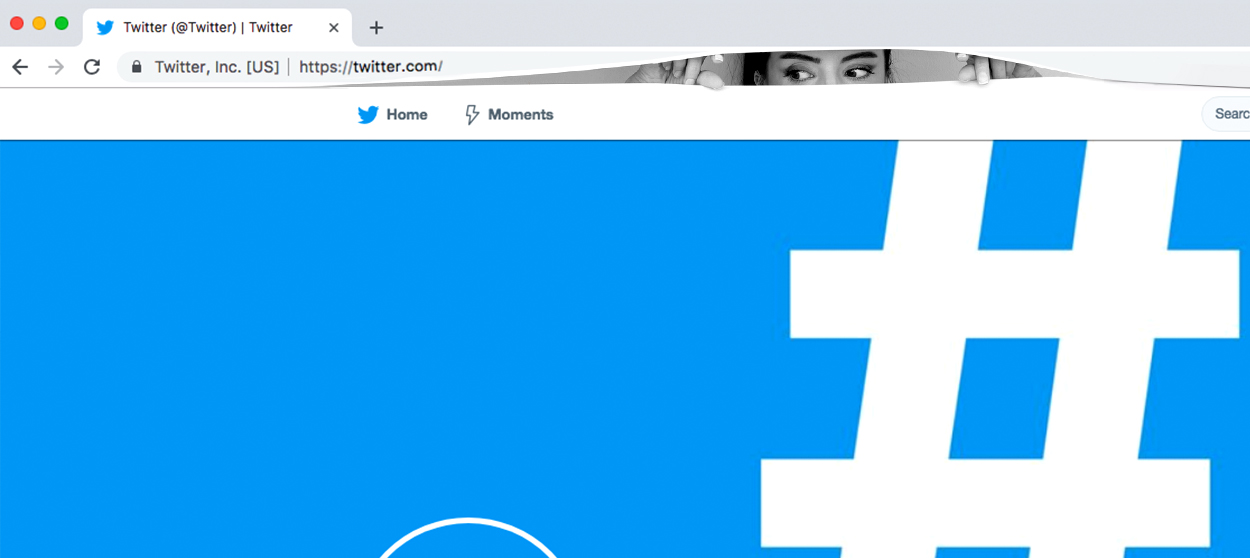Let us lurk
Lurking is the best thing about the internet. Don't ruin it, Twitter.


As a rule, I am opposed to interacting with other human beings. I barely survived 12 years of first-day-of-school introduction games; I simply refuse to eat dinner if Seamless goes down; the words "audience participation" are my personal hell. So boy, oh boy do I love the internet.
Ever since my first Neopets account (RIP), I have been an expert lurker. I creep through conversations on forums without ever announcing my presence. I made a Tumblr account simply to follow other people's Tumblr accounts. I can spend hours a day on Facebook sifting through high school friends' pages without once commenting on their posts. You can imagine my horror, then, upon learning that Twitter is considering implementing a "presence indicator" to show other users when you're online, while also potentially abolishing the "like" button, the preferred bare-minimum interaction of lurkers everywhere. It appears as if, to the detriment of everything that made the internet great, the age of anonymous creeping is coming to an end.
Lurking is defined by the be-all, end-all of internet slang, Urban Dictionary, as "spying on people online while you remain invisible." This isn't totally wrong, but it makes the act sound far more malicious and creepy than it really is. Spying? Many self-described lurkers simply prefer to listen to insightful or entertaining conversations without weighing in themselves; others want to experience a community like Twitter or Reddit without inviting the blow-back of neo-Nazis. Some are just shy.
Subscribe to The Week
Escape your echo chamber. Get the facts behind the news, plus analysis from multiple perspectives.

Sign up for The Week's Free Newsletters
From our morning news briefing to a weekly Good News Newsletter, get the best of The Week delivered directly to your inbox.
From our morning news briefing to a weekly Good News Newsletter, get the best of The Week delivered directly to your inbox.
There is nothing wrong with any of these motivations. Every public forum needs listeners as well as speakers; every publishing platform needs readers as well as writers. Nor is the anonymity of the audience a problem. In fact, it's the underlying contract of the internet: that you publish your photos, audio, or text without knowing precisely who will see it. I'd even venture that this is what makes publishing on the internet a hopeful experience: While only one person might reply to your tweet about Steely Dan being the greatest band ever, there might be another dozen people lurking who see it and quietly agree.
Lurking is often what makes being on the internet tolerable, particularly for women and people of color. In a 2014 paper beautifully titled "Understanding Lurkers in Online Communities," sociologists found that one of the main reasons people lurk online is for "security." While it might seem as if transparency would encourage safety by limiting unsavory actors from cloaking themselves in anonymity, eliminating lurkers could just inadvertently encourage attacks on people. If Twitter redesigns itself to be a more reply-centric platform — as opposed to the airing of random thoughts, observations, and cat photos that it is now — it will be emphasizing "debate," which is to say name-calling, dismissals, and threats. And since women and minorities are already the objects of so much abuse online, it's their voices who are at the most risk when forced to reveal their presence to trolls by social media companies obsessed with engagement metrics.
Thankfully — for the time being anyway — dedicated lurkers can still commit to their craft on Twitter. We should enjoy this period while we still can, before all social media goes the way of indicator lights and "ice breakers" meant to force quieter users into loud conservations. After all, what could be more important in these noisy times than just sitting back and listening?
Sign up for Today's Best Articles in your inbox
A free daily email with the biggest news stories of the day – and the best features from TheWeek.com
Jeva Lange was the executive editor at TheWeek.com. She formerly served as The Week's deputy editor and culture critic. She is also a contributor to Screen Slate, and her writing has appeared in The New York Daily News, The Awl, Vice, and Gothamist, among other publications. Jeva lives in New York City. Follow her on Twitter.


